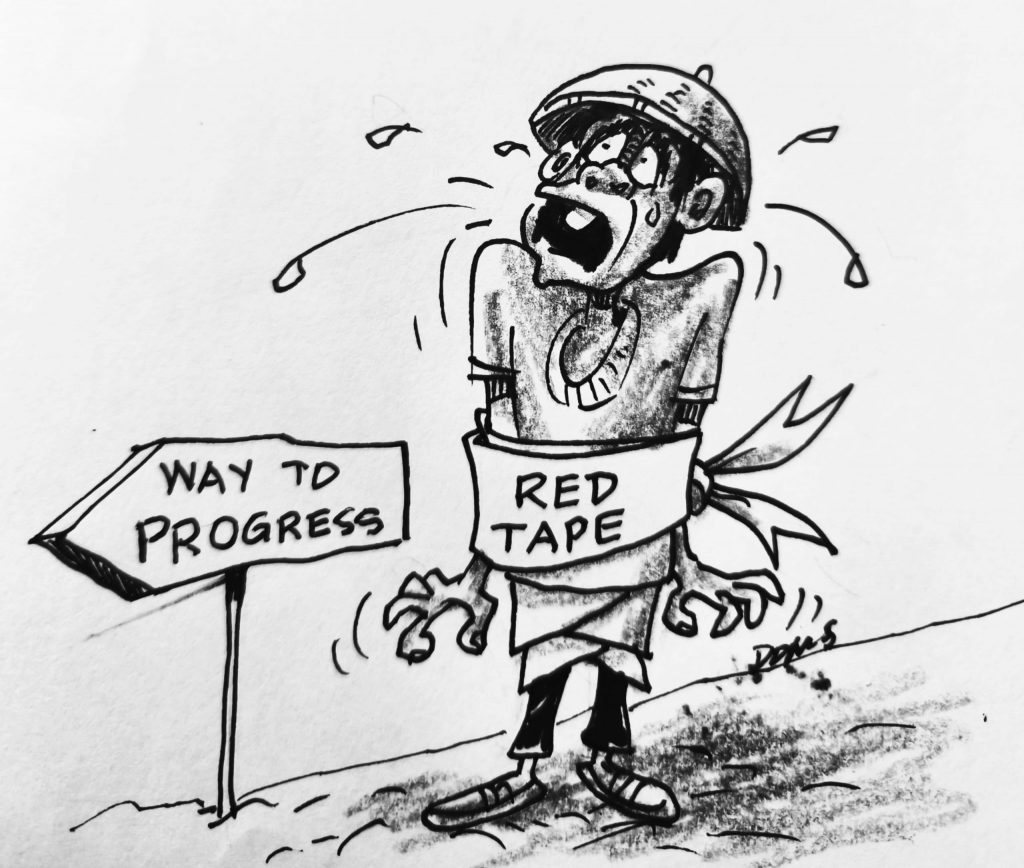The excessive red tape that hounds the processes of securing business permits, licenses, and other government clearances in the country is nothing short of a national disgrace. It has become a heavy chain that stifles productivity, discourages investment, and invites corruption to flourish in every corner of bureaucracy. This shameful reality demands urgent correction if the nation is to rise from economic stagnation.
The sheer volume of requirements imposed on applicants reveals a system deliberately designed to complicate rather than assist. From multiple signatures, redundant documents, and endless verifications, the process is often stretched out for weeks, even months.
Instead of streamlining, the bureaucracy has built a labyrinth that ordinary citizens and entrepreneurs must crawl through. Such inefficiency only wastes time and drains resources that could have been put into productive endeavors.
In the middle of these complex procedures, corruption finds fertile ground. When citizens are made to endure interminable delays and unnecessary requirements, many are forced to resort to “under the table” transactions just to move forward. The government itself thus becomes complicit in nurturing a culture of bribery and extortion. The very offices tasked with facilitating public service are reduced to toll gates where every step forward has a hidden price tag.
Foreign investors, seeing this grotesque reality, either hesitate to put their money in or pull out entirely. Their complaints about excessive rules, burdensome costs, and bureaucratic inaction are not exaggerated—they are accurate reflections of the country’s anti-business environment. While other nations compete to attract investment by offering ease of doing business, the Philippines squanders opportunities through outdated systems and officials who thrive on inefficiency. The result is predictable: stagnation, lost jobs, and a crippled business climate.
This cancer of red tape must be excised through sweeping reforms. The system needs radical simplification—reducing requirements to the bare essentials, digitizing processes to minimize human intervention, imposing accountability measures on government offices, and punishing corrupt practices with certainty. With these, public service becomes truly service-oriented, and local and foreign enterprises could thrive under an environment that respects time, values integrity, and promotes growth.




